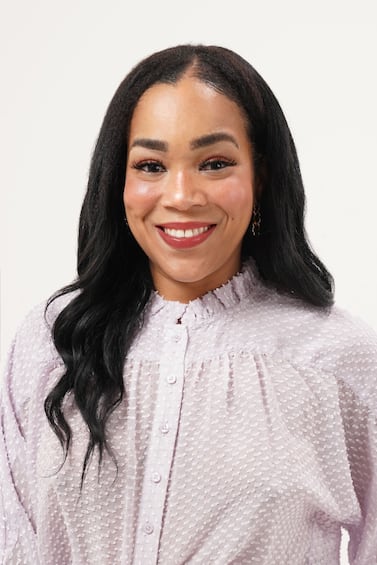
The Business of Fashion
Agenda-setting intelligence, analysis and advice for the global fashion community.

Agenda-setting intelligence, analysis and advice for the global fashion community.

In fashion’s C-suites, the more things change, the more they stay the same.
At the start of the year, former Burberry chief Marco Gobbetti took the helm at luxury footwear and leather goods maker Salvatore Ferragamo and, last month, Jonathan Akeroyd, his successor at Burberry, began his tenure at the British label. Capri-owned Versace, led by Akeroyd since 2016, tapped Alexander McQueen chief Emmanuel Gintzburger as its new chief executive. He was replaced at McQueen by Gucci’s Gianfilippo Testa.
Big fashion brands have always gone through periodic executive shuffles. But the latest round came against the backdrop of the industry’s heightened focus on diversity, equity and inclusion. Despite several years of executive mentorship programmes, DEI councils and recruitment efforts all meant to increase Black representation on every rung of the corporate ladder, it’s still almost exclusively white men who are appointed to the top job (Chanel’s Indian-born CEO Leena Nair being one prominent exception).
The lack of diversity at the top extends beyond European luxury brands. While there are numerous examples of fashion brands with Black founders, the number of big, established American fashion brands or retailers that have appointed Black CEOs over the last decade can be counted on one hand — and no Black woman has run a large fashion company.
ADVERTISEMENT
Experts say that the scarce number of Black executive leaders stems from fashion’s narrow conception of a chief executive, inadequate resources dedicated to cultivating Black talent and, more recently, scepticism on the part of minority executives who have seen their peers tapped as token hires or given unreasonable responsibilities, among other things.
“We see this pyramid where you have high levels of Black and brown talent at entry levels, but it never gets to the top,” said Ayana Parsons, a senior client partner focused on board and CEO inclusion at business consultancy Korn Ferry.
Fashion’s lack of diversity at the top reflects the broader corporate world. Nearly 90 percent of Fortune 500 CEOs are white men — and only 19 Black executives have ever been Fortune 500 CEOs (former JCPenney chief Marvin Ellison, now at the home improvement chain Lowe’s, and Tapestry’s Jide Zeitlin among them). When white male CEOs step down, if they are not replaced by another white man, they are most likely to be replaced by white women, said Richard Zweigenhaft, a professor at Guilford College and co-author of “Diversity in the Power Elite.”
But fashion’s diverse consumer demographics — and its inclusive marketing imagery and messaging — put it front and centre in conversations around corporate DEI, and make the absence of Black CEOs at major companies more curious.
“When you think about … in retail and fashion, in terms of the consumers and the community that these companies are serving, you want to be reflective of those communities,” Parsons said. “There’s a real business case around why fashion needs to be diversified at all levels.”
Many Paths, One Outcome
The biggest roadblock to bringing in more Black talent at the CEO level is the industry’s narrow approach to executive recruitment, experts say.
“Fashion and luxury brands have had the eye of a needle that they are threading CEO candidates through,” said Kyle Rudy, a partner at New York-based executive placement firm Kirk Palmer Associates. “And that includes a very strict type of fashion background.”
ADVERTISEMENT
Many fashion CEOs take the “merchant path” — getting into the business by working in product roles related to merchandising, including as buyers and divisional presidents, he said.
These roles tend to have at least some Black talent at the lower rungs, but historically it has been white employees, and white men specifically, who end up climbing the ranks to the top.
Fashion does recruit from other sectors — Chanel’s Nair came from Unilever, for one. But the same dynamic holds in those industries too: in 2020, white men in the US held 33 percent of all entry-level corporate jobs but 66 percent of C-suite posts, a 2021 study by McKinsey and Co. found.
There are plenty of Black founders in fashion (Kerby Jean-Raymond, Telfar Clemens, James Whitner, Aurora James and Carlie Cushnie are just a few examples) who have carved out their own leadership paths.
But the recent wave of thriving Black-owned businesses could also be traced back to the fact that other routes to success remain closed off, said Mark Lipton, a professor at Parsons School of Design and The New School.
“My hunch is that these are smart, hugely talented, young people who have taken a look around and said, ‘The only way I’m gonna really make it is to create my own organisation, and for me to be my own boss,’” he said.
While the industry has made some progress on diversifying its boards and other senior positions, there is a tendency to steer Black leaders towards “support roles” in areas such as human resources, or newly created chief diversity officer posts, Parsons said. Meanwhile, the path to CEO is most typically from business line leader roles, including chief financial officer and chief operating officer.
“We have to start tapping in and making sure that we are connecting [Black candidates] with top talent and making sure they have every ability to make it to C-suite,” said Durand Guion, vice president of Macy’s Fashion Office. “If those folks aren’t getting to those number two or number three positions, it becomes very difficult to say, ‘Voila we’re going to have [more Black CEOs].’”
ADVERTISEMENT
Hired Not Heard
Recruiting is a two-way street and, as fashion firms play DEI catch up, many will find that they have their work cut out for them when trying to lure qualified Black talent.
Faced with unprecedented interest from companies over the past couple of years, Black professionals are becoming increasingly sceptical when approached by recruiters for high-level roles, said Lisa Butkus, a partner at Chicago-based executive recruiting firm Hanold Associates and head of its retail and luxury goods practice.
“[They’re] asking recruiters, ‘Why are you suddenly interested in me? What is it about my resumé and experience that make me a fit for this opportunity?’” she said.
Companies that have committed to recruiting more Black leadership talent will need to be aggressive about upending age-old recruiting practices — like looking to the same predominantly white Ivy League colleges for new hires or asking mostly-white corporate employees for recommendations, experts say.
They should also challenge persistent patterns of recruiting a “certain type” of Black or minority candidate — often people who come from “elite families” or “privileged backgrounds” themselves, Zweigenhaft said.
“I don’t think it solves the problem to have a white woman or a Latino person, for instance, become a CEO of a Fortune 500 company if that person is going to act exactly as white men have acted over time,” he said.
Fashion firms will need to become more proactive about approaching and grooming Black professionals in times other than economic downturn or when business is struggling. For instance, roughly 35 percent of Black executives in management roles at Fortune 500 companies said they were assigned extremely tough projects that no one wanted to handle and had a high risk of failure, a 2019 study by Korn Ferry found.
Many are also wary of a phenomenon known as “the glass cliff,” where women and minorities are tapped as a last-ditch effort to lead a company in dire straits. Marvin Ellison, for instance, was appointed CEO of JCPenney in 2015 and charged with resurrecting the ailing department store after several other turnaround plans had failed. He left the company after three years to lead Lowe’s, also a Fortune 500 company.
Fashion firms will need to create detailed plans that are specifically intended to set up Black talent for success. Those plans should include viable pathways to the corner office as well as specialised mentorship programs and resources (financial, psychological and otherwise) that anticipate the unique circumstances and experiences of Black employees, experts say.
“I think that’s what [starting to] happen now but it’s not magic,” Guion said. “There’s a mindset shift that needs to happen amongst the ranks of people who make these decisions … that’s where the work needs to be done.”
 Opens in new window
Opens in new windowThis year will serve as the critical litmus test for consumers and fashion staffers alike to filter out the companies that don’t, and do, view diversity as a long-term exercise.
Top fashion executives are sharpening the skills they will need most to strengthen morale and boost business after a year of crises.
Over the last year, unprecedented industry support has helped to level the playing field, but Black founders still face plenty of hurdles.

Sheena Butler-Young is Senior Correspondent at The Business of Fashion. She is based in New York and covers workplace, talent and issues surrounding diversity and inclusion.
Discover the most exciting career opportunities now available on BoF Careers — including jobs from Hugo Boss, Banana Republic and House of CB.
To provide actionable insights and inspiration on how fashion and retail industries can further embed diversity, equity and inclusion in the workplace and business strategies today, BoF Careers co-hosted a panel discussion with The Outsiders Perspective. Now, BoF shares key learnings from the panel.
A US regulator has banned most uses of the clauses, which started as a way for fashion companies to prevent senior executives from walking off with trade secrets, but have become a standard retention tool.
Check out this week’s new partners and openings on BoF Careers, the global marketplace for fashion talent.